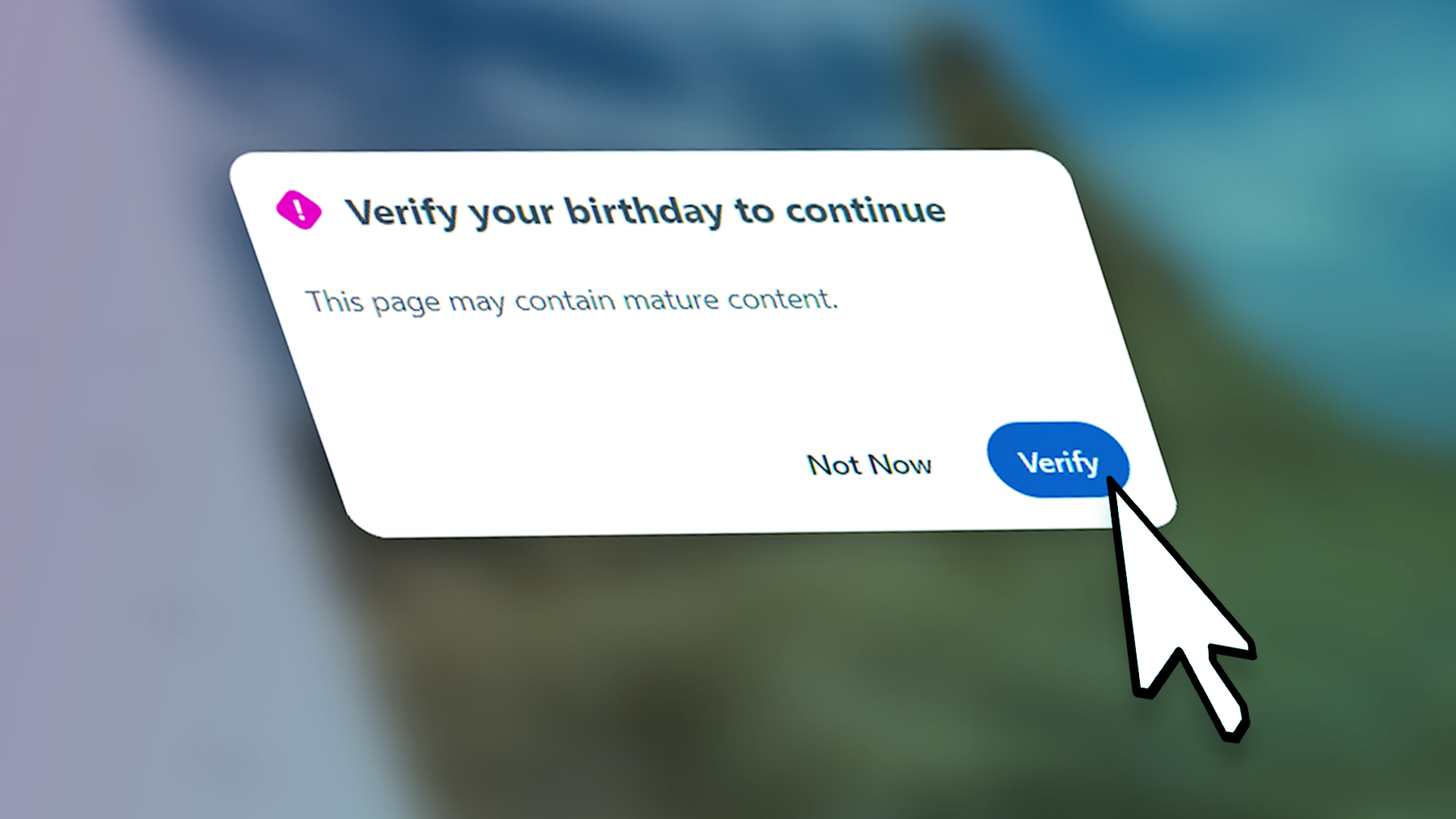State-level crackdowns in the US threaten to 'break VPN access for the entire internet,' claims online privacy nonprofit
In other news, my DMs remain unread.

Keep up to date with the most important stories and the best deals, as picked by the PC Gamer team.
You are now subscribed
Your newsletter sign-up was successful
Want to add more newsletters?

Every Friday
GamesRadar+
Your weekly update on everything you could ever want to know about the games you already love, games we know you're going to love in the near future, and tales from the communities that surround them.

Every Thursday
GTA 6 O'clock
Our special GTA 6 newsletter, with breaking news, insider info, and rumor analysis from the award-winning GTA 6 O'clock experts.

Every Friday
Knowledge
From the creators of Edge: A weekly videogame industry newsletter with analysis from expert writers, guidance from professionals, and insight into what's on the horizon.

Every Thursday
The Setup
Hardware nerds unite, sign up to our free tech newsletter for a weekly digest of the hottest new tech, the latest gadgets on the test bench, and much more.

Every Wednesday
Switch 2 Spotlight
Sign up to our new Switch 2 newsletter, where we bring you the latest talking points on Nintendo's new console each week, bring you up to date on the news, and recommend what games to play.

Every Saturday
The Watchlist
Subscribe for a weekly digest of the movie and TV news that matters, direct to your inbox. From first-look trailers, interviews, reviews and explainers, we've got you covered.

Once a month
SFX
Get sneak previews, exclusive competitions and details of special events each month!
Due to the UK's Online Safety Act implemented earlier this year, accessing my Bluesky DM's now means I need to allow a third-party service to scan my face, ID, or bank card. Understandably, that gives me the willies. So I can either simply never look at my messages again, whip out the likeness of Norman Reedus, OR I can log on via a VPN. However, the days of this vastly preferable third option may be numbered.
US states Wisconsin and Michigan have already proposed VPN crackdown bills aiming to close off this workaround—and the UK may be looking to follow suit. Online privacy nonprofit the Electronic Frontier Foundation recently criticised this strategy, taking aim at Wisconsin's bill in particular, saying that blocking the use of VPNs is "going to be a disaster for everyone."
The foundation argues that due to lawmakers misunderstanding how the location-masking technology works, "Websites subject to this proposed law are left with this choice: either cease operation in Wisconsin, or block all VPN users, everywhere, just to avoid legal liability in the state. One state's terrible law is attempting to break VPN access for the entire internet."
The EFF then goes on to explain that, contrary to the insistence of certain British MPs, the majority of people who use VPNs are not automatically on the side of 'extreme pornographers' and 'predators'. The EFF writes that, besides regular folks just wanting to browse in peace, VPNs are necessary for remote workers, university students accessing their institute's online resources, and, you guessed it, journalists trying to safely do their job.
The foundation not only underscores the privacy nightmare that is handing over your personal information to a third-party age verification company that could get hacked, but also peels back the layers on the 'think of the children' arguments fuelling Wisconsin and Michigan's recent bills.

For example, Wisconsin's bill attempts to broaden the definition of content that is "harmful to minors" by including "descriptions or depictions of actual or simulated sexual acts or body parts." So there goes the PDF of your anatomy textbook and the Wikipedia article on Michelangelo's David.
As such, the EFF argues this broad definition "would likely encompass a wide range of literature, music, television, and films that are protected under the First Amendment for both adults and young people, not to mention basic scientific and medical content." To be clear, the bill does also attempt to further specify that harmful content is "designed to appeal to prurient interests" and "lacks serious literary, artistic, political, or scientific value for minors."

But obviously, these pieces of guidance are subjective at best. As recently as 2023, a school principal in Florida was forced to resign following a sixth-grade art lesson on Renaissance art. Parents had complained that the material, which included the aforementioned statue of David, amounted to 'pornography'.
Now imagine the worst-case scenario, where Wisconsin's bill breaches containment as the EFF describes, and the entire internet is subject to a similar puritanical eye so deeply frightened by a bit of penis or nipple. I, for one, would rather not have to volunteer my personal details just to read about art history.

The best PC gaming gear 2025
All our current recommendations










Keep up to date with the most important stories and the best deals, as picked by the PC Gamer team.

Jess has been writing about games for over ten years, spending the last seven working on print publications PLAY and Official PlayStation Magazine. When she’s not writing about all things hardware here, she’s getting cosy with a horror classic, ranting about a cult hit to a captive audience, or tinkering with some tabletop nonsense.
You must confirm your public display name before commenting
Please logout and then login again, you will then be prompted to enter your display name.

